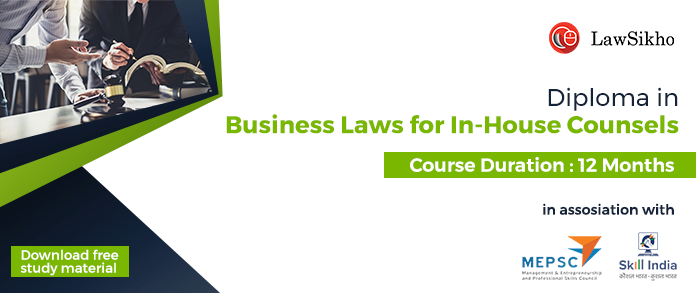This article is written by Yash Kapadia. Through this article, we shall understand the subjects included in the portion of the CLAT PG exam along with the weightage and importance of each one of them. We shall further enlist certain tips and tricks on how to prepare for these subjects.
Table of Contents
Introduction
CLAT PG exam is the short form for Common Law Admission Test- Post Graduation which is a route for successful law graduates to bolster their career who intend to further study Masters of Law (LLM) or work at a public sector undertaking (PSU) company which are generally owned in majority by the Union Government.
CLAT PG exam is held once a year and the number of exam takers has been rising year on year making it very evident that more students are interested in further studies, either specialising in a particular area of law or working at a PSU. The CLAT PG exam has become a highly competitive exam. In 2020, there were 632 PG (LLM) seats available for 5475 students who appeared and in 2021 the number of test-takers rose to above 8,000 with available seats to 1635.1
In this article, we shall discuss the following:
- Eligibility criteria of students who can give this exam;
- Syllabus as per previous years;
- Weightage of the subjects;
- Topics to prepare for the most important subjects.
CLAT PG eligibility criteria
It is imperative for every exam aspirant to first and foremost meet the eligibility criteria without which there is no way one can appear for the exam.
For the CLAT PG exam, the following are the minimum requirements for eligibility:
- “An LL.B Degree or an equivalent examination with a minimum of Fifty percent (50%) of marks or its equivalent grade in case of candidates belonging to General/OBC/PWD/NRI/PIO/OCI categories and Forty-Five percent (45%) of marks or its equivalent grade in case of candidates belonging to SC/ST categories.
- Candidates appearing in the qualifying examination in April/May 2021 are also eligible to apply.
- No upper age limit is prescribed for appearing in CLAT 2021”.
Additional information to keep in mind:
In case of equal marks, the break of tie shall be by the following procedure and order as under:
- Higher age;
- Computerised draw of lots.
This is commonly referred to as the tie-breaker rule.
If one fulfills the above eligibility criteria, then they can move on to the next step of ascertaining the syllabus and subjects involved in this exam.
Syllabus of CLAT PG
Disclaimer: Considering the changing pattern of the CLAT PG exam, we have, for the benefit of future aspirants included information and tips on how to approach the objective as well as subjective sections.
At this post-graduation level, the syllabus mainly includes subjects taught in the undergraduate 3 or 5-year programs. As per CLAT PG 2021, the exam will have two sections:
- The objective section comprises 100 multiple-choice questions, with each carrying one mark.
- The descriptive section requires the test-takers to write two essays of 800 words each, on given topics. Each essay will be of 25 marks.
Therefore, this is a 150 mark exam with -0.25 being deducted for every wrong answer.
For an easy understanding, this is how the paper pattern looks like:
| 100 objective questions | 1 mark each |
| 2 subjective questions | 25 marks each |
| Total marks | 150 |
Objective section
The objective section will have extracts from primary legal materials such as important court orders in various fields of law concerning different statutes or newly formulated regulations. Each passage will be followed by a series of questions that will require you to demonstrate the:
- “Ability to read and comprehend the issues discussed in the passage, as well as any arguments and viewpoints discussed or set out in the passage;
- Awareness of the issues discussed in the passage, as well as of legal issues and facts related to and arising out of the passage and the judgment or statute from which it is extracted;
- Summarise the passage; and
- Ability to apply your knowledge of the fields of law discussed in the passage.”
The objective section will include the subjects of constitutional law, jurisprudence, tort law, contract law, criminal law, public international law, labour law, tax law, family and property law.
Subject-wise important topics
Constitutional Law
This subject carries a weightage of 40-50 marks i.e. the most weightage from the objective and subjective section wherein a 40-mark MCQ section is devoted to constitutional law. Questions can be asked from bare acts, doctrines, landmark cases, recent case laws and new developments.
The following are the most important topics that one cannot afford to miss in order to score the maximum marks in constitutional law2:
| History | Features | Doctrines of Constitutionalism |
| The Preamble | Citizenship (Article 5-11) | Articles 12-35, inter-relation between Article 14, 19, 21, Article 352-360 |
| Fundamental Rights and Duties | Writs | Directive principle of state policy |
| Parliament and its functions | Constitutional and Non-Constitutional bodies |
One must also be well conversant with important case laws that have been delivered in the last 2-3 years because there will definitely be questions relating to such judicial precedents in the objective as well as the subjective section of the CLAT PG exam.
Rahul Mathur, AIR 5, CLAT PG stated in an interview3 that Constitution is one of the most important subjects for the CLAT PG test and he focused on reading current and previous historic cases, and if any article of the Constitution was mentioned in the judgment, he read it from the Constitution Bare text. Besides, he recommended that every test-taker must study the key concepts of the Constitution.
Jurisprudence
The subject of jurisprudence requires having excellent knowledge of the concepts which requires a detailed study of specific topics. The weightage of this subject in the CLAT PG exam is around 40-50 marks again, including objective and subjective sections. After referring to past years papers of CLAT PG exam, the following are some of the most important topics on which questions are asked in the objective section4
- Definition, significance, nature and scope of jurisprudence under which:
- Relation between law and justice (thoughts of HLA Hart, Amartya Sen, Aristotle;
- Relation between law and morals (Study HLA Hart and Devlin debate).
- School of jurisprudence;
- Realist movement which shall include:
- American Realism;
- Bad Man Theory by;
- Works of Jerome Frank;
- Scandinavian Realism;
- Economics and State;
- Thoughts of legal pluralism;
- Feminist jurisprudence;
- Sources of law under which one has to learn legislation, judicial reasoning and custom;
- Legal concepts that would include theories of punishment and concept of injustice.
Certain important points to remember when preparing for this subject is to:
- Not memorize or mug the syllabus;
- Understand the concepts by relating them to real life;
- Make structured notes. A tutorial on the same can be referred to here.
Contract Law
The law of contracts can be one of the most competitive sections in the CLAT PG exam. One must understand the very foundations of knowledge and concept in order to correctly answer any objective questions based on contract law.
Some of the most important topics to focus on are as follows:
- Agency contracts;
- Insurance guarantee;
- Contract formation;
- Discharging of contracts;
- Quasi-contracts;
- Void, voidable, illegal contracts, etc.
All in all, one must know the basics of contract law at the back of your hand. A bare act or even a commentary of Avtar Singh or R.K. Bangia. The objective questions i.e. the MCQ may have close options and one must have precise knowledge about every concept in order to differentiate the correct option from the others.
As per the CLAT PG exam of 2021, 12 questions with 2 passages were asked based on Contract law.5
Criminal Law
Surprisingly, the CLAT PG exam of 2021 contained criminal law questions unexpectedly in a higher proportion from the Code of Criminal Procedure, 1973 (CrPC) and not the Indian Penal Code (IPC).
Around 30 questions were asked on the topic of criminal law and also included 4 comprehension-type passages.
Some areas where a test-taker needs to focus on and be well prepared to answer MCQ questions on and write essay type answers on are:
- General principles and definitions of criminal law;
- Punishments and exceptions;
- Liabilities;
- Criminal conspiracy;
- Offences and defamation;
- Most important sections of the CrPC and IPC.
Subjective section
The subjective section of the CLAT PG exam, as mentioned earlier, weighs 50 marks i.e. one-third of the total marks of the entire paper. This makes it evident that the subjective section can very well make or break your result and ultimately your rank. The two most important skills need to be practiced are legal writing and structuring. A test-taker must be extremely precise whilst answering essay-type questions keeping in mind the different structures needed to write different types of answers to questions.
It is important to know that no answer can cross the 800-word limit in any answer of the subjective section. The subjective may have questions based on the following:
- Constitutional law like basic structure, emergency provisions, executive powers;
- Jurisprudence;
- Contract law;
- Tort law;
- Contemporary issues mean the recent amendments or new provisions that have come into force in the last 1-2 years
- Recent judgements wherein one must be well conversant with the legal issue, facts and philosophical issue (its relation with other laws and systems, especially ethics and political philosophy).
One must keep in mind that there must be a steady flow of writing in the essay-type answers. For example, if the question is based on emergency provisions of the Constitution of India, then the following must be the structure of the answer:
- Introduction
Start with what is the history of emergency provision and where can we find it. Then write down from where has the emergency provision been borrowed in the Constitution. Define the provision in an as it is manner. For example, as per Article 14 of the Constitution of India, “The State shall not deny to any person equality before the law or the equal protection of the laws within the territory of India”
- Body
Write down what are the constitutional provisions for each emergency provision. One must make a list of it describing them in point form. List down the recent judgements for each one of them describing the most important parts.
- Conclusion
This part may include the current situation of the emergency provisions and one can also reframe this paragraph as suggestions to be put down for the examiner to read.
The evaluator easily speedreads such structured answers when a test-taker highlights, underlines the main keywords in order to make the checking easier and seamless. Lastly, one must prefer using a black or a blue ball pen whilst writing the subjective answers.
Apoorva Gupta, AIR 5, CLAT PG stated in an interview6 that the major law subjects she focussed on were Constitutional law after solving previous year papers to ascertain majority of questions are asked from this subject. However, she also focussed on other subjects like labour law, environment law and contract law case laws. She stated that she devoted 4-5 months to her preparations. She first practiced a sample paper and prepared her strategy. She practiced one essay question daily. She advised that one must not limit their preparations to Constitutional law but also other areas as questions can be asked from any subject in any manner either objective or subjective.
Tips to prepare for the objective and subjective sections
- Start with reading the bare acts and once one is through with the bare act of a particular subject, then one must move on to reading commentaries for the purpose of the literal interpretation of the statute and judicial interpretation of that statute through various landmark case laws.
- Manage your time as per your subjects. Every subject must be given in accordance with how well you are able to grasp the knowledge and remember it. Someone may be good at criminal law and someone may be good at contract law. Therefore, it is important to acknowledge the strong points and weak points and manage your time accordingly in working on all subjects.
- For the objective questions i.e. MCQ questions, one must keep practicing as many mock tests and previous year papers as one can possibly do. Going a step further, one can enroll for a crash course too which includes doubt solving sessions and mock tests to boost one’s confidence.
- For the comprehension-based approach, one must be in the habit of reading these questions and timing oneself to understand how much time it generally takes for comprehension to be read and then answered. A short trick is to start it with the approach of speed reading. Doing this will train the mind to look out for the keywords making the process of answering the connecting questions much easier.
- For the subjective questions i.e. essay-type questions, it is important that one at least practices this section once every two weeks until two to three weeks before the exam. Though this may be tiring and time-consuming, the test-taker will be in a much better position than others if he/she is in the habit of writing down these long answers.
- Another point to remember in subjective questions is to make a rough draft of the structure of the answer before one actually starts to write it. Having a layout on a rough sheet of what needs to be written in detail provides a better picture to the writer, thereby improving the quality and flow of the answer.
- Last but not the least, it is recommended to not sacrifice your sleep in the last few days before the exam. The reason is, one needs to be at their best possible self, mentally and physically, in order to excel at this highly competitive exam. Try to work out regularly and keep yourself physically fit to optimize your mind’s potential to the fullest.
Conclusion
What we understand from the information provided in this article is that the syllabus for the CLAT PG exam is definitive. However, the questions to these limited topics can be framed in whatsoever manner in case of objective questions i.e. MCQs. With respect to the subjective part, writing a 25 mark answer is no cakewalk either. It requires a lot of time, thinking, stamina and consistency to build a flow as in a short piece of detailed information is given.
CLAT PG exam, though competitive, does provide a gateway to the best of law schools for LLM and PSU jobs. If you are planning to or even vaguely intending to pursue this course and appear for CLAT PG in the near future, attending this Free Bootcamp on how to crack the CLAT-PG exam for LLM and PSU Jobs would answer a lot of doubts and further increase the knowledge and scope of this exam for any aspirant.
References
- https://law.careers360.com/articles/clat-seats
- https://www.youtube.com/watch?v=iuHkZuG56Ys
- https://indianlegalsolution.com/interview-with-harshit-sharma-air-15-2019-air-23-2020-in-clat-pg/
- https://www.youtube.com/watch?v=7NDjxgUVU6I
- https://blog.finology.in/recent-updates/things-you-know-about-clat-pg
- https://www.youtube.com/watch?v=gKwZEzX0Ksk
LawSikho has created a telegram group for exchanging legal knowledge, referrals, and various opportunities. You can click on this link and join:
https://t.me/joinchat/J_0YrBa4IBSHdpuTfQO_sA
Follow us on Instagram and subscribe to our YouTube channel for more amazing legal content.
 Serato DJ Crack 2025Serato DJ PRO Crack
Serato DJ Crack 2025Serato DJ PRO Crack











 Allow notifications
Allow notifications


